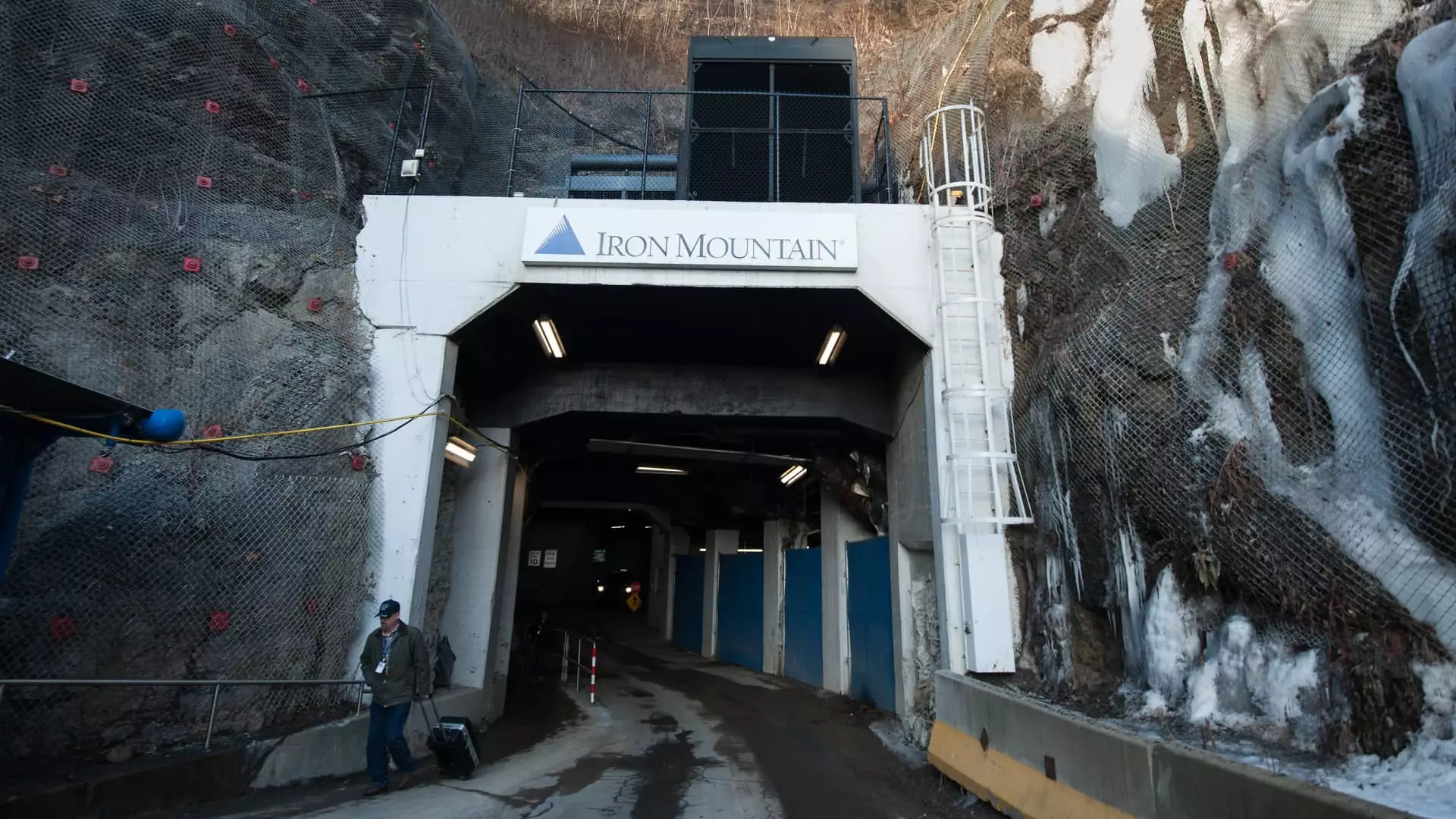In an interesting discourse at the Oval Office, Elon Musk, the visionary entrepreneur behind companies like Tesla and SpaceX, brought the attention of the federal government towards improving operational efficiency. Speaking beside President Donald Trump, Musk highlighted an antiquated limestone mine that serves as a storage facility for essential government documents, specifically retirement paperwork. This revelation not only illustrated the pressing need for modernization but also highlighted the broader implications of Musk’s insights on the government contracting landscape, particularly in relation to the less-known entity, Iron Mountain.
The aged limestone mine, a remnant from the 1950s, has become a focal point in the conversation about governmental efficiency. Musk described the facility’s inefficiencies, likening it to a “time warp,” where the slow speed of its elevator hinders the processing of federal employee retirements. This metaphor accurately captures the absurdity of relying on such archaic systems for important administrative tasks. With only a limited capacity to process around 10,000 retirement applications per month, it raises strong concerns about how the federal government manages its resources and the outdated systems it employs.
The mine’s operational model is emblematic of a broader issue—an inflexible bureaucracy that could potentially benefit from innovative solutions. As Musk himself articulated, “Instead of working in a mine shaft and carrying manila envelopes to boxes in a mine shaft, you could do practically anything else, and you would add to the goods and services of the United States in a more useful way.” This critique of outdated practices highlights the potential for significant improvement through digital transformation.
Following Musk’s comments, Iron Mountain—a company traditionally known for its document storage services—found itself under scrutiny. The unexpected attention spurred a volatile reaction in the stock market, with shares declining over 10%. CEO Bill Meaney attempted to mitigate these concerns by emphasizing the company’s substantial revenue from digital transformation services, which amount to $130 million, compared to a meager $10 million derived from government document storage.
Meaney’s assertion that the municipal push for efficiency presents growth opportunities speaks volumes about the foresight of the digital age. With more than 200 federal agencies collaborating with Iron Mountain, the company is well-positioned to leverage its capabilities in data centers and digitization. This contrasts sharply with the physical storage model represented by the limestone mine and highlights the urgent need for modern storage solutions that align with the demands of contemporary data management.
Musk’s remarks underscore a significant paradox within government operations. While there is a palpable movement towards greater efficiency and modernization, many federal operations remain trapped in the past, hampered by outdated technologies and processes. This confrontation between innovation and tradition is further emphasized by the Trump administration’s efforts to audit and streamline federal expenditures, which could place traditional contractors, like Iron Mountain, in a precarious position.
In light of Musk’s emphasis on efficiency, stakeholders must recognize that an era of rigorous scrutiny is emerging. Firms operating within government contracts must adapt swiftly to new efficiency mandates. The concern surrounding the potential dissolution of contracts, as highlighted by Musk’s statements, should propel these companies to evolve their service offerings proactively rather than reactively.
Market analysts have expressed skepticism regarding the overreaction to Elon Musk’s comments. The assertion that Iron Mountain’s revenue is not heavily reliant on any single federal contract provides a reassessment of the risk involved. Analysts point out that despite the possibility of losing contracts related to physical document storage, the firm would likely cushion such losses with primary revenues stemming from digital transformation services.
This insight aligns with the evolving governmental landscape, where record-keeping and storage requirements remain indispensable, thereby ensuring a steady demand for Iron Mountain’s services, albeit in a modernized framework. Additionally, the insistence on record retention within the government further protects companies like Iron Mountain, as they remain integral to compliance and operational continuity.
Musk’s comments not only challenge the status quo but also invite a broader discussion on the necessity of innovation within the federal government. The juxtaposition of traditional methods against modern technological needs epitomizes the pressing demand for transformation, pushing companies like Iron Mountain to adapt and innovate in order to thrive in this evolving environment. The path forward necessitates a collaborative effort, focusing on the enhancement of government operations while embracing the capabilities of the digital age.


Leave a Reply